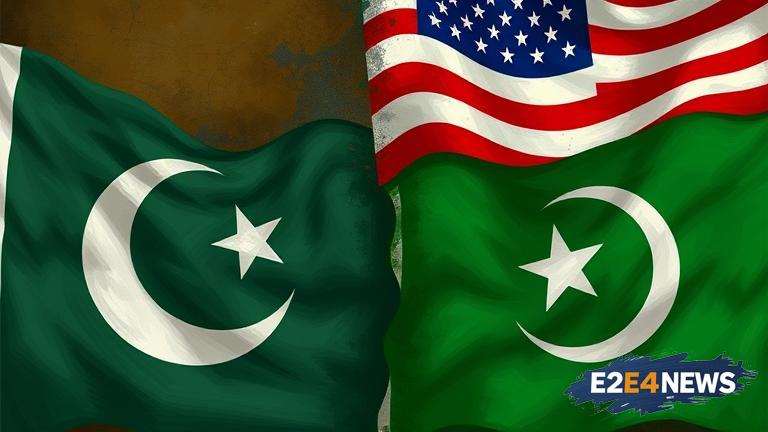The relationship between Pakistan and the United States has been a complex and multifaceted one, with various factors influencing their interactions over the years. Historically, the two nations have cooperated on several fronts, including counter-terrorism efforts and regional security. However, their partnership has also been marked by periods of tension and mistrust. In recent times, there has been a noticeable shift in the focus of their relationship, with geo-economics emerging as a key driver of their engagement. This change in approach is largely driven by the evolving global economic landscape and the growing importance of trade and investment in shaping international relations. The US has been seeking to strengthen its economic ties with Pakistan, with a view to promoting regional stability and prosperity. Pakistan, on the other hand, has been keen to diversify its economy and reduce its dependence on traditional sources of funding. The China-Pakistan Economic Corridor (CPEC) has been a major factor in this context, with the US viewing it as a strategic opportunity to counterbalance China’s growing influence in the region. The US has also been encouraging Pakistan to adopt more business-friendly policies and improve its investment climate. In response, Pakistan has been taking steps to liberalize its economy and attract foreign investment. The country has also been seeking to enhance its trade relations with the US, with a focus on increasing exports and reducing its trade deficit. The US has been providing technical assistance and support to Pakistan to help it achieve these goals. Furthermore, the two countries have been cooperating on regional connectivity initiatives, such as the Central Asia-South Asia (CASA) project. This project aims to promote economic integration and cooperation among the countries of the region. The US has also been supporting Pakistan’s efforts to develop its energy sector, with a focus on renewable energy sources. In addition, the two countries have been working together to promote people-to-people ties and educational exchanges. The US has been providing scholarships and exchange programs for Pakistani students, with a view to promoting mutual understanding and cooperation. Overall, the shift from geo-politics to geo-economics in Pakistan-US relations is a positive development, with the potential to promote regional stability and prosperity. However, there are also challenges that need to be addressed, including the need to improve Pakistan’s investment climate and reduce its trade deficit. The US and Pakistan must work together to address these challenges and promote a more stable and prosperous region. The future of Pakistan-US relations will depend on their ability to navigate these challenges and seize the opportunities presented by the evolving global economic landscape. In conclusion, the transformation of Pakistan-US relations from a geo-political to a geo-economic focus is a significant development, with far-reaching implications for the region. As the two countries continue to engage on economic issues, they must also address the underlying challenges and complexities that have historically characterized their relationship. By doing so, they can promote a more stable and prosperous region, and advance their shared interests in a rapidly changing world. The US and Pakistan must prioritize cooperation and mutual understanding, and work together to address the common challenges they face. This will require a sustained effort and commitment from both sides, but the potential rewards are significant. A stronger and more stable Pakistan-US relationship will have positive implications for the entire region, and will help to promote peace and prosperity in a critical part of the world.
